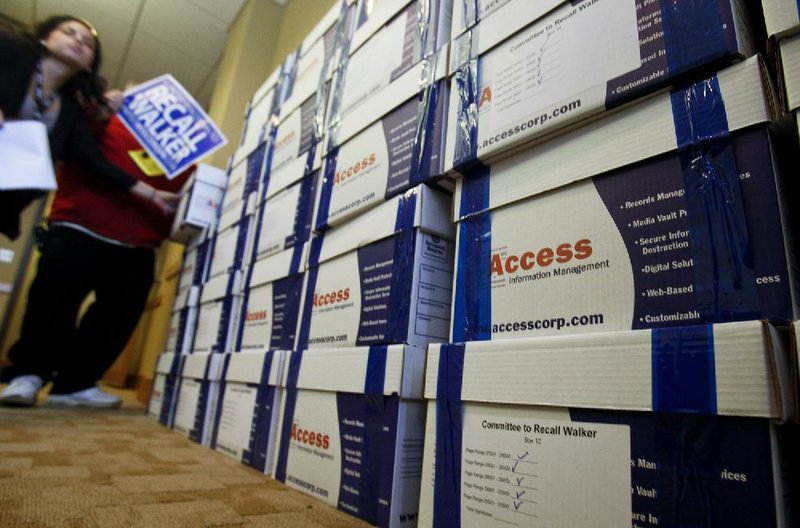MADISON, Wis. — Wisconsin Gov. Scott Walker will face a recall this spring after an election was ordered Friday following the collection of more than 900,000 signatures.
The Government Accountability Board voted 5-0 to order the recall, a move that has been expected for weeks given the high number of signatures gathered between November and January. It took 540,208 signatures to trigger a recall.
Assuming a Democratic primary is necessary, it will be May 8. The actual recall vote then will be June 5. Three Democrats already have announced they are running and Milwaukee Mayor Tom Barrett, whom Walker defeated in 2010, has said he would announce his intentions before Tuesday.
Walker said Thursday that he looked forward to making his argument for keeping his job during the recall campaign.
“It gives us a great opportunity to tell our story, to tell that we’re turning things around, how we’re heading in the right direction, how we’re moving Wisconsin forward,” Walker said after a news conference in Milwaukee. “But we’ve got a lot more to do.”
There have been two successful gubernatorial recalls in U.S. history, against California Gov. Gray Davis in 2003 and North Dakota Gov. Lynn Frazier in 1921.
Walker was targeted for recall after he pushed through a law last year that effectively ended collective bargaining rights for most state workers. It also forced the workers to contribute more to their pension and health care costs, which amounted to a cut in pay.
Walker argued the changes were needed to help balance the state’s budget, while Democrats and other opponents said the true intention was to weaken the power of unions, which have traditionally opposed Republicans.
Four Republican state senators also have been targeted for recall, one of which subsequently resigned. All six elections will be on either May 8 or June 5, depending on whether there are primaries.
